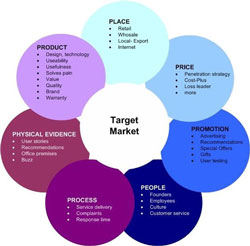
In an era where news travels fast; a brand's online presence has a growing influence on how companies are perceived by their target audiences. As the adage goes: "Manage your brand, or someone else will manage it for you." This has never been truer, with consumers now exposed to not only what the company is saying about itself, but most importantly what the consumer's friends, families, peers and media are saying, as well.
"It is of critical importance to have a well-crafted design and branding strategy," says Bruce Muller, Director and Head of Digital, Engage Brandcraft. "This is not only essential to addressing a company's online needs, it also brings with it the ability to directly measure consumer behaviour," he adds.
Engage Brandcraft, a Cape Town-based branding agency focused on the origination and renovation of brands across logo creation, digital, packaging design and print, is a team of strategic and creative individuals. With more than seven years of delivery and more than 100 successfully launched projects to date, the company's clients includes the likes of Naartjie Kids, Fuseware, PayGate, Web Africa and Environ.
Muller shares some best practices for creating and managing an effective digital marketing strategy and presence. "It's about strategy and consistency across all mediums, both on- and offline, but by following certain key truths, building an effective digital campaign is within everyone's reach," he adds.
1. Build the best website
It all starts with your company's website. A company website is like an online office. It must look good and be easy to use, with extra care taken to ensure it will achieve its core objective - attracting viewers. Ensure that it is Google - and other search engine - friendly by being structured in such a way that the search engine's bots are able to index it. And remember, your website is really an extension of who you are, offering an opportunity to communicate your message with your customers and the world at large. And with technology constantly evolving, and some website fads here today and gone tomorrow, it's worthwhile remembering that simple to use, easy to understand and visually appealing are always going to be 'keepers'.
2. Liking, following and pinning
With your online presence a reflection of who you are and a constant means of communication with your customers and target audience, when it comes to 'liking', 'following' or 'pinning' - exactly 'what' is the most important question. Exactly how relevant are these pages to the business and its audience? While sharing memes of smiling cats (something rather popular) can work if one's target is not corporate, sharing the company's latest press releases about the economy might be more suitable to a professional audience.
3. Consistency and smashability
Whether online or offline, consistency is key. Your company's identity needs to be easily recognisable, irrespective of the medium being used. So whether it's your website, product packaging or corporate stationery - your brand elements need to be easily usable across multiple touch points, without much replication required. This is known as the 'smashability' factor, with some great examples including the likes of Apple and Coca-Cola.
4. Don't oversell
While communicating your brand proposition is key, using your online presence to push your brand and products at every available opportunity is sure to have the opposite effect to what you are trying to achieve. Remember, it is important to provide something of value that will capture the consumers' interest before, during and after the sales process. Online marketing makes it easy to gain an understanding of what your market wants, so use this to your advantage. There is no need to oversell your product online. Rather, of primary importance is content that is both relevant and engaging and speaks to the diverse needs and interests of your market. Give your audience a reason to keep on coming back by positioning yourself as a resource that takes their entire lives into account; providing content that is informative and relevant over and above just your own product portfolio.
5. Be easily accessible
The online world is huge and growing even bigger as you read this. Make it easy for people to find you by using all of your available resources and media to promote relevant website URLs and social media links. And make sure you have great content - not only making it easy for Google and other search engines to rank you, but equally importantly, to keep your audience coming back for more.
"But it is key to remember the importance of brand identity flowing across all media, ensuring alignment and consistency across all touch points - both off- and online," says Muller. From a unique and iconic logo that resonates with your target audience to the role packaging can play in a brand's identity - one has to ensure that whatever you embark on in the world of online needs to be consistent with all offline activities as well.
But there is no disputing that the world of digital marketing is a powerful medium. "It is vital for digital marketing to be a key component of any marketing strategy," adds Muller. "Online communication is taking over, with companies who are investing in it yielding not only the opportunity for greater connection with their existing market, but in addition, opening the door to exposure within new markets and an increased return on marketing investment and spend," he concludes.